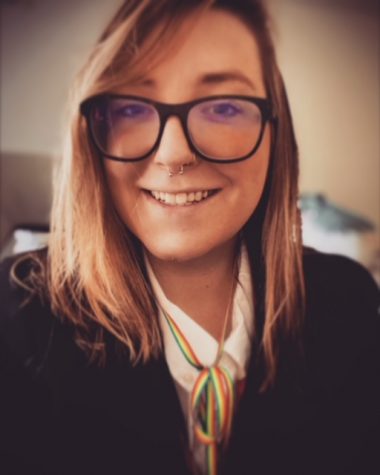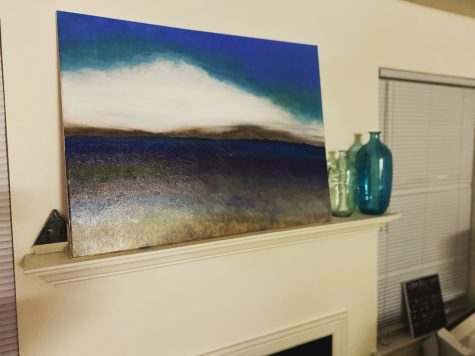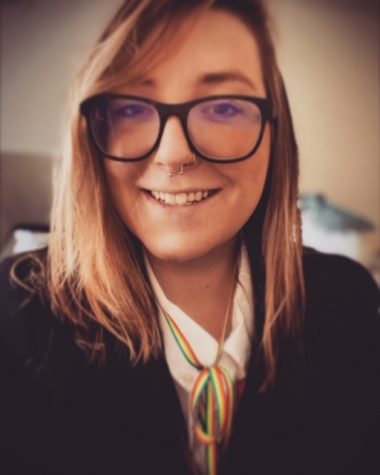Kat Haines: ‘I couldn’t control my thoughts. I couldn’t even sleep’
When you look into the mirror, what do you see?
I see a woman I don’t really recognize quite yet. A woman who beat the odds of addiction and bipolar disorder. A woman of strength.
Hi, my name is Kat Haines, and I am a senior marketing major at Quinnipiac University. I’m writing this piece not to brag about the way I have overcome obstacles in life but rather to raise awareness. When people think of a drug addict, they don’t typically think of a privileged teen from Connecticut. When people think of a queer woman, they don’t normally think of a girl in a dress. And when people think of what means to be bipolar, they think of the hot and cold, similar to the ups and downs of the weather.

I was born in Los Angeles and moved to Newport, Rhode Island, when I was 10 years old. My family was very good to me, but things took a turn for the worst when my parents got divorced. My mom financially struggled, working 16-hour days to create her own interior design business. My dad moved to New York and quickly had a brand new family. That was my view of how things went down at that time.
I hid my sexuality growing up because I was too afraid to show my family who I really was. Instead, I was the picture-perfect kid — straight A’s, theater nerd, funny — the kid other parents wished they had.
The summer before my senior year of high school I traveled to Rome, France and Washington D.C., where I ended up drinking abroad for the first time. I never really experimented with alcohol or drugs in high school — I was too hyperfocused on academics. I was 17 years old at the time, and the drinking triggered my first manic episode. I couldn’t control my thoughts, I couldn’t even sleep. I remember looking my mom in the face when she came to visit, and all I said was, “Mom, what is wrong with me?”
We didn’t know. We didn’t know what bipolar disorder looked like. We didn’t know that for the next seven years that same straight-A student was going to be in and out of treatment.
Now, I can’t fit my whole story into one article. But what you should know is that I’ve attempted suicide. Over 25 of my friends have died from overdoses and addiction. I’ve been to seven rehabilitation centers and four psychiatric facilities. It wasn’t easy.
When I applied to Quinnipiac, I was still in rehab. It was a long-term treatment center in New Haven, Connecticut, that I stayed in for 18 months. By the end of that, I moved into transitional housing, or what we call “sober living.” I didn’t really tell anyone at school this, because at the time, I was embarrassed.
Fast forward to now: I work for one of the biggest companies in the tech industry, I run my own graphic design and oil painting business (@graphicsandoils on Instagram), I’m sober, I’m on great medication for mental health, and I finally am graduating from college after seven years.

If you take away anything from this piece, take away this:
A “junkie” isn’t always what they seem to be.
A “gay woman” isn’t always the girl you might assume her/them to be.
And lastly, when you walk into a Barnes & Noble bookstore, there will be 20 books on anxiety, 20 books on depression, but only two books on bipolar disorder. Start talking about the mental health diseases that people don’t normally talk about.
If you’re struggling with any mental health disorder, your sexuality or addiction, reach out. Don’t shame yourself for being different — it gets better, I promise. If I can beat the odds, so can you.








